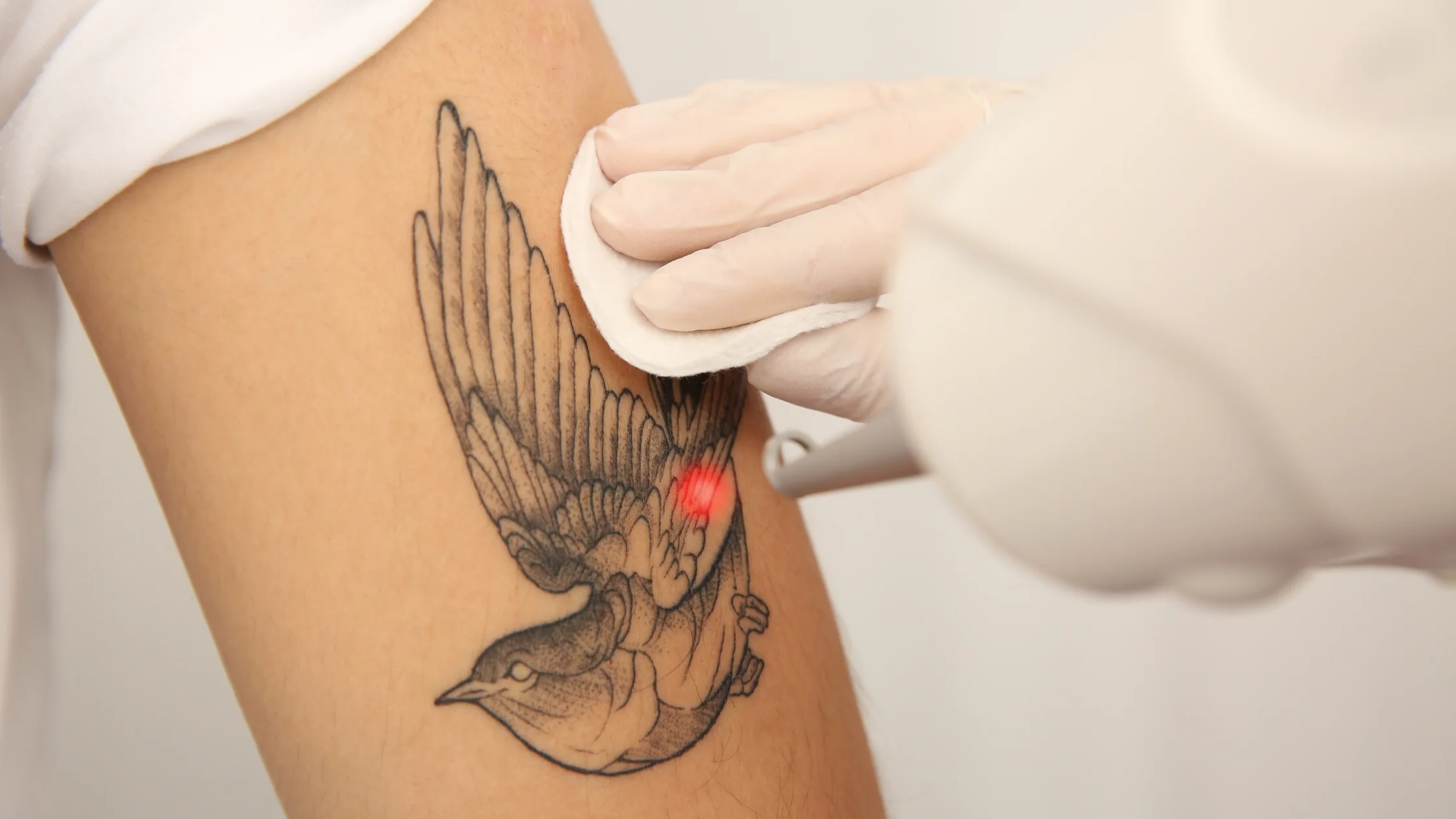Tattoo removal has become an increasingly common procedure as more people seek to erase tattoos that no longer resonate with their personal or professional lives. While tattoos are often considered permanent, advances in technology have made it possible to remove them with varying degrees of success. However, the cost of tattoo removal can vary significantly, influenced by several key factors. This article will explore those factors to help you understand what determines the price of tattoo removal, including a look into Surrey laser tattoo removal services.
Type of Tattoo Removal Method
The method chosen for tattoo removal is one of the most significant factors influencing the cost. The most common method is laser tattoo removal, which uses high-intensity light beams to break down the ink particles in the skin. Other methods include surgical excision, dermabrasion, and chemical peels, though these are less commonly used due to their invasiveness and potential for scarring.
Laser removal is generally preferred for its effectiveness and minimal scarring, but it can be costly. The price is often determined by the number of sessions required, which depends on several other factors that we will discuss. It’s important to consult with a qualified professional to determine the best method for your specific tattoo and skin type.
Size and Complexity of the Tattoo
The size of your tattoo is a straightforward determinant of the cost of removal. Larger tattoos require more time and resources to treat, naturally increasing the cost. Complexity also plays a role; intricate designs with detailed lines and shading require more precision and can take longer to remove.
For example, a small, simple black tattoo might require fewer sessions and less time per session compared to a large, colorful piece with intricate details. The latter not only takes more laser passes but also necessitates a more skilled professional, which can add to the cost.
Number of Sessions Required
The number of sessions needed to effectively remove a tattoo can vary widely. Factors such as the age of the tattoo, the ink colors used, and the depth of the ink all influence how many sessions will be necessary. Older tattoos, for instance, may be easier to remove as the ink has naturally faded over time.
Typically, laser tattoo removal requires between 5 to 10 sessions, but this can vary. Each session can cost anywhere from $100 to $500, depending on the factors mentioned previously. It is worth noting that some professionals offer package deals for multiple sessions, which can reduce the overall cost.
Ink Colors and Quality
The colors used in your tattoo are another crucial factor. Black ink is the easiest to remove because it absorbs all laser wavelengths, while colors like green, blue, and yellow can be more challenging. Special lasers are often required for these colors, which can increase costs.
Additionally, the quality of the ink plays a role. Professional tattoos generally use higher-quality inks that might be more challenging to break down compared to amateur tattoos, which often use lower-quality ink.
Location of the Tattoo
The location of the tattoo on your body can also influence the removal cost. Areas with more sensitive skin, such as the neck or inner arms, might require more careful treatment, potentially increasing the number of sessions required. Conversely, tattoos on areas with thicker skin, like the back or thighs, might be easier to treat and thus less costly.
Skin Type and Health
Your skin type and overall health can affect the tattoo removal process. Certain skin types are more prone to side effects such as hyperpigmentation, which might necessitate additional treatments or longer healing times between sessions. People with healthier skin and a robust immune system often experience faster ink clearance, potentially reducing the number of sessions needed.
Geographic Location
Where you live can significantly impact the cost of tattoo removal. Prices tend to be higher in urban areas with a higher cost of living. For instance, Surrey laser tattoo removal services might be priced differently compared to those in a rural setting due to differences in operating costs and demand. It’s always a good idea to compare prices and consult with multiple providers in your area to get a sense of the average cost.
Expertise of the Professional
The experience and expertise of the professional performing the removal also play a pivotal role in determining the price. More experienced professionals, especially those with advanced certifications or specialized training, may charge higher fees for their services. However, paying a premium for expertise can be worthwhile, as it can increase the likelihood of successful removal with minimal side effects.
Additional Costs
In addition to the primary cost of the removal sessions, there may be other associated costs. These can include consultation fees, aftercare products, or additional treatments to address side effects like scarring or pigmentation changes. It’s important to discuss all potential costs upfront to avoid any surprises.
Conclusion
Tattoo removal can be a complex and costly process, with prices influenced by a wide range of factors, including the method used, the size and complexity of the tattoo, the number of sessions required, and the expertise of the professional. While the cost can be significant, many people find that the benefits of removing an unwanted tattoo are well worth the investment.
If you’re considering tattoo removal, it’s crucial to do your research and consult with a qualified professional who can provide a personalized assessment based on your specific circumstances. Whether you’re looking at options in your local area or considering Surrey laser tattoo removal, take the time to compare services and costs to make an informed decision. Remember, the goal is not just to remove the tattoo but to do so safely and effectively, minimizing any potential risks or side effects.
